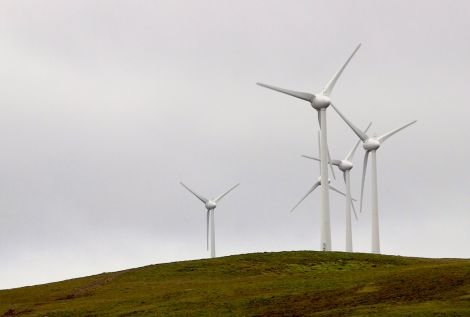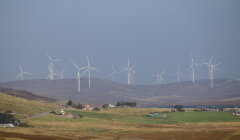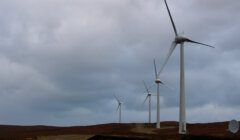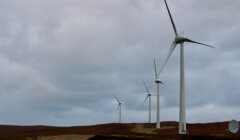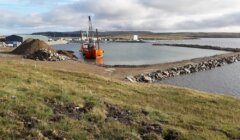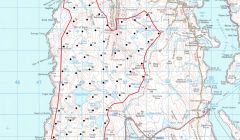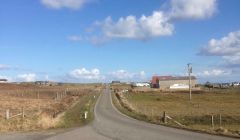Community / North Yell Development Council on the search again for new manager
Knock-on effects of the pandemic has also seen production at the development council’s Garth wind farm fall
NORTH Yell Development Council’s new development manager has stepped down after only a few months in the role – leading to a search for a replacement.
Sarah Kersey was appointed to the role late last year but development council director Andrew Nisbet said she has had to resign due to personal reasons.
“We were very happy with the person – she was doing really well – so I think it’s regrettable on both sides that that had to happen,” he said.
The development council – which oversees the Garth wind farm project in North Yell – is now recruiting again, with a closing date of 5 March.
Nisbet said the development manager would lead the organisation’s project to create a new marina in Cullivoe and extend the nearby business park.
The project previously hit a snag over the condition of the Cullivoe road, and the planning process is still ongoing following a request to transport material by sea instead.
“There’s a few planning issues that we have to resolve, and also funding problems that we have to resolve – both are interconnected,” Nisbet said.
He envisages that the issues should be able to be sorted out to allow work to start this summer.
Nisbet said the development manager would lead the marina and business park project.
The 4.5MW Garth wind farm, meanwhile, has “had the worst year we’ve had so far” – although it has still turned in a profit.
The five-turbine farm was launched in 2017 with the aim of reinvesting profit back into the community.
Nisbet said there were three reasons why production has been down on the wind farm recently.
One was perhaps the most obvious – a lack of wind, with January for instance 20 per cent below normal production.
Another factor was lower demand on the local electricity grid as a result of lockdown and coronavirus restrictions.
Become a member of Shetland News
“We’ve been getting more grid constraint, and that was more over the summer months,” Nisbet said.
“It was due to the lower demand on the Shetland grid because of the lockdown.”
Nisbet said this would have been due to offices and businesses shutting, with less heating and lighting needed.
“That meant that we had to be constrained off the grid more than we have been recently.”
The pandemic has also affected the time it takes for maintenance workers to travel to Shetland to respond to faults.
Become a member of Shetland News
Shetland News is asking its readers to consider paying for membership to get additional perks:
- Removal of third-party ads;
- Bookmark posts to read later;
- Exclusive curated weekly newsletter;
- Hide membership messages;
- Comments open for discussion.
If you appreciate what we do and feel strongly about impartial local journalism, then please become a member of Shetland News by either making a single payment, or setting up a monthly, quarterly or yearly subscription.






